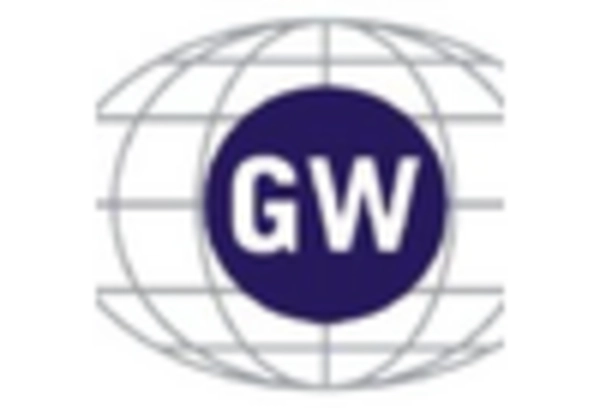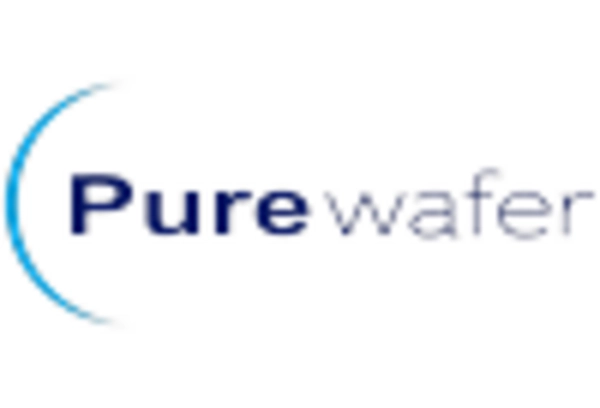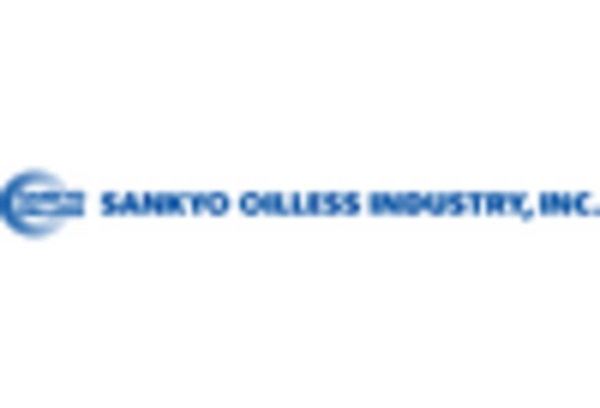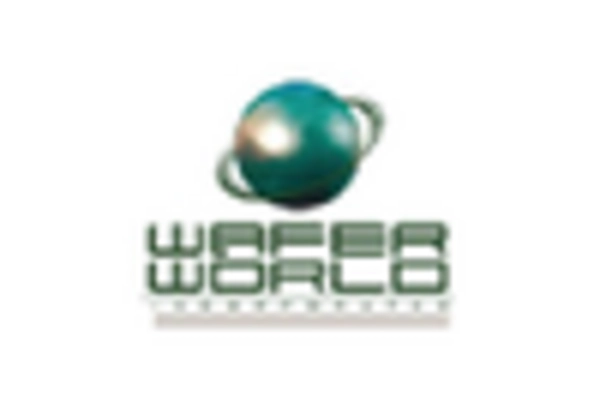Rising Demand for Electronics
The increasing demand for electronic devices in Indonesia is a primary driver for the silicon wafer-reclaim market. As the country experiences a surge in technology adoption, the need for semiconductors and integrated circuits rises correspondingly. This trend is evident in the electronics sector, which is projected to grow at a CAGR of approximately 8% over the next five years. Consequently, the silicon wafer-reclaim market benefits from this growth, as reclaimed wafers provide a cost-effective and sustainable alternative to new wafers. The ability to recycle and reuse silicon wafers aligns with the industry's focus on reducing waste and enhancing resource efficiency, making it a crucial component in meeting the rising demand for electronic components.
Growing Focus on Cost Reduction
The need for cost reduction in semiconductor manufacturing is a critical driver for the silicon wafer-reclaim market. As companies in Indonesia strive to maintain profitability amidst rising production costs, reclaimed silicon wafers present a viable solution. By utilizing reclaimed materials, manufacturers can significantly lower their expenses associated with raw silicon procurement. This focus on cost efficiency is particularly relevant in a competitive market where profit margins are under pressure. The silicon wafer-reclaim market is likely to see increased demand as businesses recognize the financial benefits of incorporating reclaimed wafers into their production processes, thereby enhancing their overall competitiveness.
Environmental Regulations and Compliance
Stringent environmental regulations in Indonesia are driving the silicon wafer-reclaim market as companies seek to comply with sustainability standards. The government has implemented policies aimed at reducing electronic waste and promoting recycling practices. As a result, manufacturers are increasingly turning to reclaimed silicon wafers to meet these regulations while minimizing their environmental footprint. The silicon wafer-reclaim market is positioned to grow as businesses recognize the importance of sustainable practices in their operations. Compliance with environmental regulations not only enhances corporate responsibility but also opens up new market opportunities for reclaimed materials, potentially increasing market share for companies engaged in this sector.
Government Support for Semiconductor Industry
The Indonesian government has been actively promoting the semiconductor industry, which significantly impacts the silicon wafer-reclaim market. Initiatives aimed at enhancing local manufacturing capabilities and attracting foreign investment are likely to bolster the market. For instance, the government has introduced tax incentives and subsidies for companies involved in semiconductor production and recycling. This support is expected to stimulate growth in the silicon wafer-reclaim market, as manufacturers seek to optimize their production processes and reduce costs. With the government's backing, the industry may witness an increase in the establishment of reclamation facilities, further driving the demand for reclaimed silicon wafers.
Technological Innovations in Wafer Reclamation
Technological advancements in wafer reclamation processes are significantly influencing the silicon wafer-reclaim market. Innovations such as improved cleaning techniques and advanced etching methods enhance the efficiency and quality of reclaimed wafers. These developments allow manufacturers to produce high-quality reclaimed wafers that meet the stringent specifications required for modern semiconductor applications. As technology continues to evolve, the silicon wafer-reclaim market is likely to benefit from increased adoption of these advanced reclamation technologies. This trend not only improves the economic viability of reclaiming silicon wafers but also positions the market favorably in the competitive landscape of semiconductor manufacturing.












